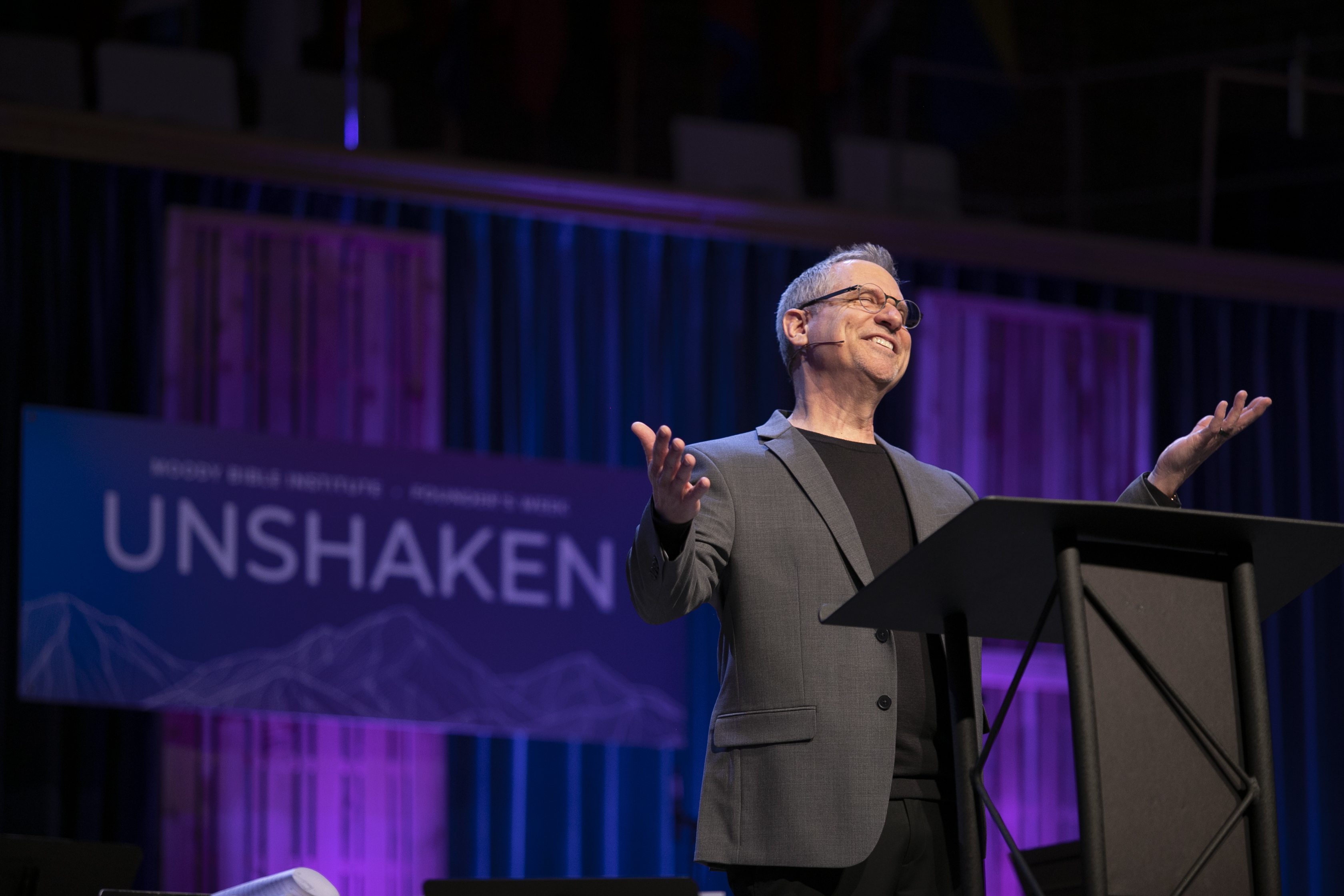Trust and Obey
- February 4, 2022

by Jeff Smith
Few institutions have suffered as deeply during COVID-19 as the church.
Consider:
• Up to 1 in 3 Christians have stopped attending church in the last two years according to national surveys.
• US church membership in 2020 fell below 50 percent for the first time since Gallup tracking began in 1940.
• Pastors report “church hopping” has surged dramatically among consumer-minded churchgoers, and record numbers of members are fleeing their churches over disagreements, dissent, and discord.
So, who is to blame for the church’s struggles? Speaking at Founder’s Week 2022 on Thursday at Moody Bible Institute, Tim Downey said the answer is found by looking in the mirror.
“I believe the factors of the division within the church have less to do with the current issues of the day,” said Downey, a professor at Moody since 2005 and senior director of campuses and outreach at Christ Community Church in suburban Chicago. “This division is caused by something far more disturbing than where a person stands on a particular issue.
“I believe God has used the current circumstances we find ourselves in to rip away the façade and reveal the true conditions of our hearts. That is the issue of the day within the church. By and large, we as Christians have not only deeply divided the church but have deeply divided society . . . Where we ought to be quick to unite and slow to divide, It seems we are slow to unite and quick to divide.”
The Bible’s solution to this crisis?
“In one word,” Downey said, “it’s obedience.”
Private obedience
Downey said God’s Word calls Christians to practice private, relational, and sacrificial obedience. Turning to Philippians 2:1–17, he said private obedience is our first priority.
“Paul tells the Philippian believers to be obedient to God when no one is watching,” he said. “In the present context, Paul is referring to sanctification . . . growing more and more like Jesus and less and less like the world. Learning to live unshaken in this dark world will be a lifelong endeavor. It begins privately. We can’t do it on our own. I must depend on the Spirit of God in me to live in obedience to the commands of Christ in every area of my life.”
Relational obedience
Relational obedience, Downey said, is ultimately about our attitude—obeying God without complaining, arguing, criticizing, or grumbling.
“When we have a complaining, cynical spirit it’s because number one, we don’t trust God. We don’t think He has our best interest in mind,” he said. “The second reason is we’re idolatrous. James 4:2 says you covet but you cannot have what you want, so you quarrel and fight. Covetousness is idolatry.”
Contentment and perspective are keys to realizing relational obedience, Downey said.
“We live in a very dark, broken, shaken world and an imperfect church,” he said. “Christians who ran from their churches because they didn’t agree on this decision or that issue, the greener grass will become brown soon . . . We need to stop expecting everything to be just like we want it because we live in a fallen world. Paul says we need to be content.”
Downey said lives marked by relational obedience vividly reflect Christ and open doors to share the gospel. “Philippians 2:15 calls us to be blameless children of God,” he said. “By living without blemish, God’s children will stand out clearly against the dark backdrop of the world . . . How we live is crucial to proclaiming the excellencies of the One who has saved us by demonstrating to a fallen world and all we encounter a transformed life.”
Sacrificial obedience
Referencing Philippians 2:17, Downey said sacrificial obedience in the 21st century largely comes down to recognizing our source of true joy.
“The reason we have such a discontented, unhappy society, even among Christians, is because people are trying to find joy in everything but sacrifice and serving, which is where we find ultimate joy,” he said. “Sacrifice and serving causes us to focus our attention on serving Jesus Christ and sacrificing on behalf of others, and focuses us away from ourselves.”
‘Time for the church to rise up and be the church’
Downey closed by encouraging the audience to affect change in their churches and world by committing to this three-pronged obedience to Christ.
“It’s time for the church to rise up and be the church. We need to be obedient in our private lives. That’s where it starts. We need to be obedient in our relationships. We need to be obedient in sacrificing and in serving others. Then unity will return, and the church will once again be the unshaken church, and others will be drawn to our Savior.”